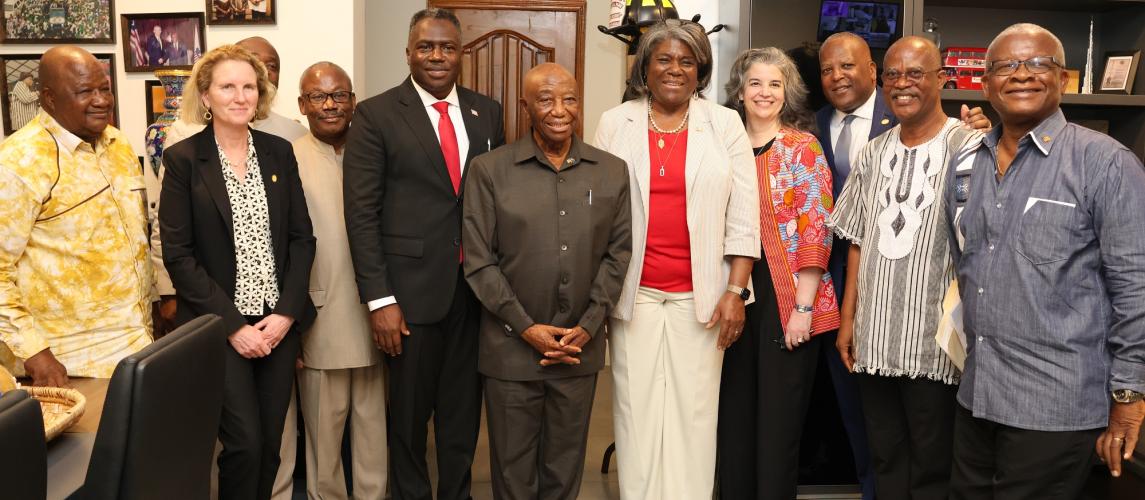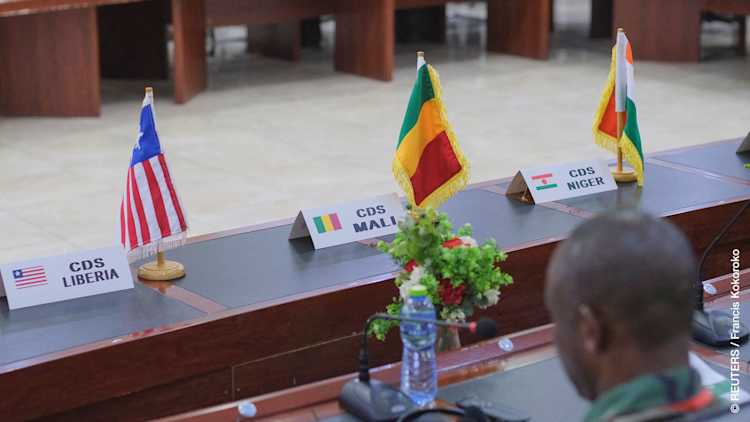U.S. Leaders Ignore Economic Realities
In a recent gathering at the White House, President Donald Trump hosted a lunch with African leaders, including Liberia"s President Joseph Boakai, who expressed gratitude for U.S. investments in Liberia. While Boakai’s praise for Trump’s ‘Make America Great Again’ policy may have resonated on the surface, it glossed over significant issues regarding the economic exploitation of African nations. The lionizing of U.S. foreign policy by leaders like Boakai often masks the deep-seated structural inequalities that continue to persist in these nations.
Historical Context of Economic Manipulation
The very foundation of Liberia is steeped in a history that is problematic at best. Established in 1822 as a colony for free Black Americans, the country"s inception was rooted in a paternalistic view by white Americans who sought to address what they perceived as "the problem of Black people"s future" in a post-slavery society. This legacy of colonialism and exploitation has long shaped Liberia"s economic landscape, which struggles under the weight of foreign debt and dependence on U.S. aid, a situation that continues today.
Investment or Exploitation
President Boakai"s call for U.S. investment in Liberia raises critical questions about the nature of such investments. Are they truly beneficial for the Liberian people, or do they primarily serve the interests of American corporations? As reported by BBC News, years of civil conflict have left Liberia with fragile economic structures. The influx of U.S. investments often fails to translate into substantive job creation or community development, leaving local economies vulnerable to the whims of foreign entities.

United States Inaugural Delegation Visits President Boakai ...
Language and Power Dynamics
During the luncheon, Trump’s comments about Boakai’s English skills, though seemingly innocuous, reveal a deeper power dynamic at play. Trump"s remarks about Boakai’s eloquence underscore a troubling stereotype that equates language proficiency with intelligence and capability, relegating African leaders to subordinate positions. This dynamic not only discredits the intelligence of non-English speakers but also perpetuates an image of African nations as dependent on Western validation.
International Relations Built on Flawed Foundations
The gathering signaled a broader trend in U.S. foreign policy, where stability and economic alignment are prioritized over genuine partnerships based on mutual respect and understanding. FrontPage Africa reported on how the Trump administration’s approach often overlooks the need for accountability in governance among African leaders. This has serious implications for the promotion of democratic values and human rights in the region.
Call for Genuine Economic Justice
The rhetoric surrounding U.S. investments in Africa must shift from superficial praise and platitudes to a genuine commitment to economic justice. It is crucial that investment strategies prioritize local development, empower marginalized communities, and create sustainable economic opportunities rather than merely benefiting foreign shareholders. The voices of those most affected by these policies, particularly in countries like Liberia, must be amplified in discussions about economic partnerships with the United States.
Future Directions for U.S.-Africa Relations
As the U.S. continues to engage with African nations, it is imperative that such interactions prioritize equitable economic frameworks and foster true partnerships. Recognizing the historical context of economic manipulation and the ongoing challenges faced by African countries is essential in reshaping the narrative. The future of U.S.-Africa relations should be rooted in mutual respect, accountability, and a shared commitment to dismantling the legacies of colonial exploitation.

Ten Things to Watch in Africa in 2024


![[Video] Heavy clashes and gunfire reported in Baghdad, Iraq](/_next/image?url=%2Fapi%2Fimage%2Fthumbnails%2Fthumbnail-1768342239932-848qsh-thumbnail.jpg&w=3840&q=75)




![[Video] Gunfire between Iraqi security forces and Sadr militias in Baghdad](/_next/image?url=%2Fapi%2Fimage%2Fthumbnails%2Fthumbnail-1768343508874-4redb-thumbnail.jpg&w=3840&q=75)
